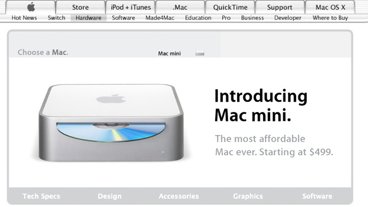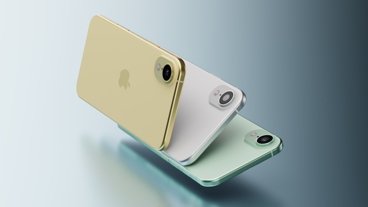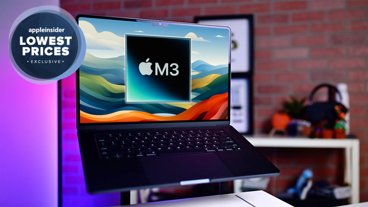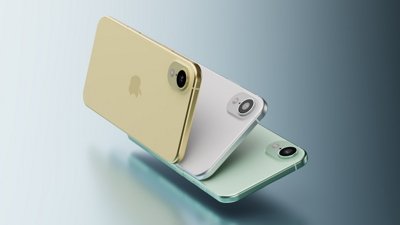BlackBerry on Tuesday announced the launch of Secure Work Space, a new solution built on its BlackBerry Enterprise Service and compatible with Android devices and Apple's iPhone and iPad, continuing a trend that has seen the phone maker increasing its focus on services.
The company announced the development on Tuesday, noting that the move will allow BlackBerry to ensure that clients can fully manage all of the devices they support, even if they aren't necessarily BlackBerry devices.
“Mobility is fundamentally transforming how we live and work. As our dependency on mobile solutions grows, and as a greater variety of mobile devices enter the workplace, the need for solutions to manage and secure these devices has never been greater," said David J. Smith, EVP, Enterprise Mobile Computing at BlackBerry.
BlackBerry first announced Secure Work Space in March of this year. The service will give users of iPhones and other devices the ability to access data and applications behind corporate firewalls without needing to manage and configure a VPN connection. BES 10 for third-party platforms will also include secured client applications for e-mail, calendar, contacts, tasks, memos, secure browsing, and document editing.
BES 10 is increasingly popular in the enterprise sector, with more than 60 percent of U.S. Fortune 500 companies using or testing the system. BlackBerry now has 18,000 BES 10 servers in place, with a third of those going online in the last month.
The widening platform is not a totally new development for the troubled Canadian phone maker. Last year, BlackBerry launched BlackBerry Mobile Fusion, a mobile device management software that supported not only handsets running BlackBerry OS, but also Google's Android and Apple's iOS.
That shift toward supporting other platforms is part of a general trend for BlackBerry, which has some 77 million BlackBerry device owners and subscribers worldwide but can no longer necessarily count on its hardware sales to support its business. Once a leader in productivity-oriented smartphones, BlackBerry (née Research In Motion) has fallen on hard times since Apple's iPhone revolutionized the sector.
BlackBerry launched a series of unsuccessful devices to compete with the iPhone, and the company lost users all along. Most recently, the phone maker launched a range of new handsets running the newest version of its operating system, BlackBerry OS 10. One of those models is said to have seen some success, but just how successful it has been won't be revealed until the company details its earnings for the most recent financial quarter.
In addition to BES 10, BlackBerry is also reaching out to put its renowned messaging service onto other platforms. The company announced back in May that BlackBerry Messenger would be coming to devices running at least iOS 6 and Android 4.0, though the service has yet to launch on either platform.
 AppleInsider Staff
AppleInsider Staff






-m.jpg)






 Marko Zivkovic
Marko Zivkovic
 Wesley Hilliard
Wesley Hilliard
 Malcolm Owen
Malcolm Owen


 William Gallagher
William Gallagher

 Andrew Orr
Andrew Orr-xl-xl-m.jpg)









5 Comments
With this release, it's obvious that Blackberry has given up in the hardware department. It's kind of sad. I was rooting for them. Though I'd never buy their products.
The quote from David Smith made me laugh out loud. It was just nice to hear the company acknowledge reality finally. Seriously thought, good for them moving to position themselves as a more service-oriented company. Blackberry realized their strengths within the marketplace and are going to avoid becoming completely technologically irrelevant. And, really, we need a Switzerland in the middle of the "platform wars" so companies can say "pick whatever darn smartphone you want our core communications will work on it anyway".
IMO- this could be a boon for them. For what ever reason(contrary to reports), defense dept etc still do not like iOS and Android overall security with out 3rd party help. It would be great to get my corporate email on my personal iphone even if it is in a booberry app. But, my company (very large aerospace) will not allow corporate email on ANY personal device, virtual or not.... sigh! Ohhh by the why does Microsoft keep missing the boat on this.
It's good blackberry realized there phones aren't selling well, rather thank other companies having a new phone come out trying to be exactly like the iPhone with extra features every time I take a dump.
[quote name="GadgetCanadaV2" url="/t/158231/blackberry-secure-work-space-support-now-available-for-apples-ios#post_2352191"]With this release, it's obvious that Blackberry has given up in the hardware department. It's kind of sad. I was rooting for them. Though I'd never buy their products. [/quote] Not that I would be using anything they make, but... Companies may support multiple phone and tablet makers, but they are unlikely to deploy multiple mobile device management (MDM) solutions. Opening a MDM solution like BES to support other manufacturers is not necessarily a sign of "giving up in the hardware department". It is just accepting reality: companies who are 100% on BB are becoming hard to find. So, the choices are; support the competition as well (with some features remaining BB-only), or risking that companies will buy into MDM solutions that do not support BB10 at all and lose these companies forever. As per today not a single 3rd-party MDM does support BB10, so keeping BES10 in as many corporations as possible is vital for BB.